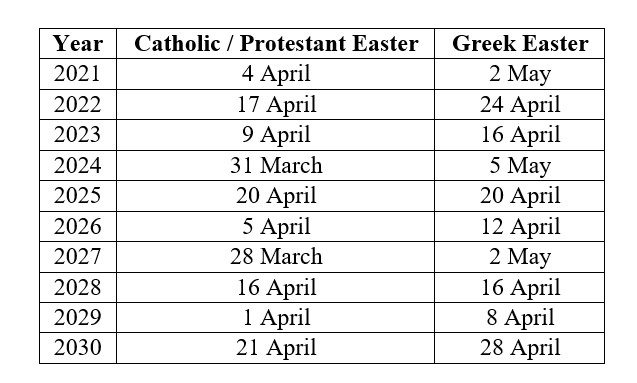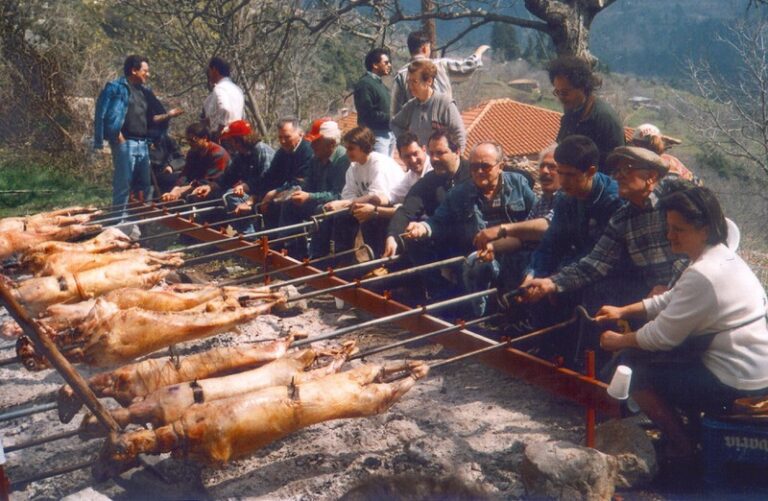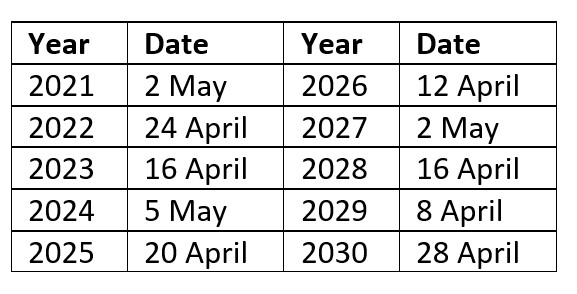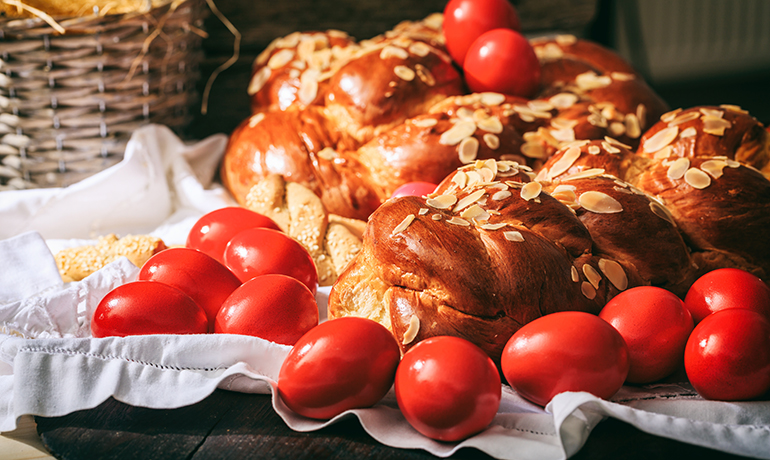Greek Easter 2025: Calendar Date, Traditions, And Significance
Greek Easter 2025: Calendar Date, Traditions, and Significance
Related Articles: Greek Easter 2025: Calendar Date, Traditions, and Significance
- December 2025 Calendar Vector: A Comprehensive Guide
- February 2025 Calendar With Holidays In India
- Department Of Education Queensland Calendar 2025: A Comprehensive Guide
- April 2025 Calendar With Easter: A Detailed Overview
- 2025 Calendar Editable Free Download: Plan Your Year With Ease
Introduction
In this auspicious occasion, we are delighted to delve into the intriguing topic related to Greek Easter 2025: Calendar Date, Traditions, and Significance. Let’s weave interesting information and offer fresh perspectives to the readers.
Table of Content
Video about Greek Easter 2025: Calendar Date, Traditions, and Significance
Greek Easter 2025: Calendar Date, Traditions, and Significance

Introduction:
Greek Easter, also known as Pascha, is the most important religious festival in the Greek Orthodox calendar. It is a time of great celebration and spiritual renewal, marked by elaborate traditions, delicious culinary delights, and a deep sense of community. In 2025, Greek Easter will fall on Sunday, April 20th, offering a unique opportunity to immerse oneself in the vibrant customs and profound meaning of this ancient festival.
Calendar Date:
The date of Greek Easter varies each year, as it is determined by the lunar calendar. In the Eastern Orthodox tradition, Easter is celebrated on the first Sunday following the first full moon after the spring equinox. This means that Greek Easter can occur anywhere between late March and late April.
Holy Week:
The week leading up to Greek Easter is known as Holy Week, a period of intense religious observance and preparation. Each day of Holy Week has its own special significance, with services and traditions that commemorate the events leading up to Christ’s crucifixion and resurrection.
Palm Sunday (Kyriaki ton Vayon):
Holy Week begins with Palm Sunday, which marks the triumphant entry of Jesus into Jerusalem. Churches distribute palm branches to the faithful, who wave them in procession to symbolize the joy and hope of Christ’s arrival.
Holy Monday (Megali Deftera):
On Holy Monday, the faithful attend church services that focus on the cleansing of the Temple. It is also a day for families to gather for picnics and outdoor activities, enjoying the first day of spring.
Holy Tuesday (Megali Triti):
Holy Tuesday commemorates the parable of the ten virgins, who prepared their lamps for the arrival of the bridegroom. Church services emphasize the need for vigilance and spiritual readiness.
Holy Wednesday (Megali Tetarti):
Holy Wednesday is dedicated to the betrayal of Judas Iscariot. Services recount the events leading up to Christ’s arrest and trial.
Holy Thursday (Megali Pempti):
Holy Thursday is one of the most solemn days of Holy Week. It commemorates the Last Supper of Jesus with his disciples and the institution of the Holy Eucharist. Churches hold special services that include the washing of the feet, symbolizing humility and service.
Good Friday (Megali Paraskevi):
Good Friday is a day of mourning and reflection, marking the crucifixion of Jesus Christ. Churches hold somber services that include the veneration of the Cross and the reading of the Passion narrative.
Holy Saturday (Megalo Savvato):
Holy Saturday is a day of anticipation and preparation for the resurrection of Christ. Churches hold services that include the blessing of candles and the reading of Old Testament prophecies.
Greek Easter Sunday (Kyriaki tou Pascha):
Greek Easter Sunday is the culmination of Holy Week and the most joyous day of the year. Churches hold festive services that announce the resurrection of Christ. The faithful exchange greetings of "Christos Anesti" ("Christ is Risen") and enjoy traditional Easter feasts with family and friends.
Traditions and Customs:
Greek Easter is celebrated with a rich array of traditions and customs that have been passed down through generations.
Lamb on the Spit (Arni sou Vla):
One of the most iconic traditions of Greek Easter is the roasting of a whole lamb on a spit. This symbolizes the sacrifice of Christ and is a central part of the Easter feast.
Red Eggs (Kokkina Avga):
Red eggs are a symbol of new life and the resurrection of Christ. They are traditionally dyed red on Holy Thursday and exchanged as gifts on Easter Sunday.
Easter Bread (Tsoureki):
Tsoureki is a sweet braided bread that is often flavored with orange zest and mastic. It is a popular Easter treat that represents the sweetness of the resurrection.
Easter Cookies (Koulourakia):
Koulourakia are traditional Easter cookies that are shaped like wreaths or braids. They are made with a simple dough and often sprinkled with sesame seeds.
Easter Supper (Magiritsa):
Magiritsa is a traditional Easter soup made with lamb offal, greens, and lemon. It is typically eaten after the midnight resurrection service on Easter Sunday.
Significance:
Greek Easter is not merely a cultural festival but a deeply spiritual event that holds profound significance for the faithful. It is a celebration of the victory of life over death, hope over despair, and love over darkness. Through its rituals and traditions, Greek Easter invites participants to reflect on the meaning of Christ’s sacrifice and to renew their faith in the power of resurrection.
Conclusion:
Greek Easter 2025 promises to be an unforgettable experience, filled with vibrant traditions, delectable cuisine, and a profound sense of spiritual renewal. Whether you are a devout Orthodox Christian or simply curious about this ancient festival, the celebration of Greek Easter offers a unique opportunity to witness the enduring power of faith and the joy of resurrection.



)




Closure
Thus, we hope this article has provided valuable insights into Greek Easter 2025: Calendar Date, Traditions, and Significance. We thank you for taking the time to read this article. See you in our next article!